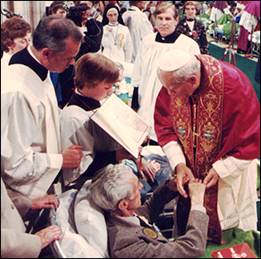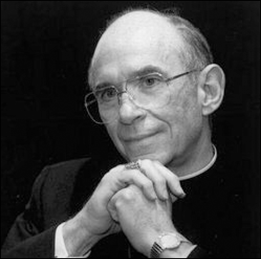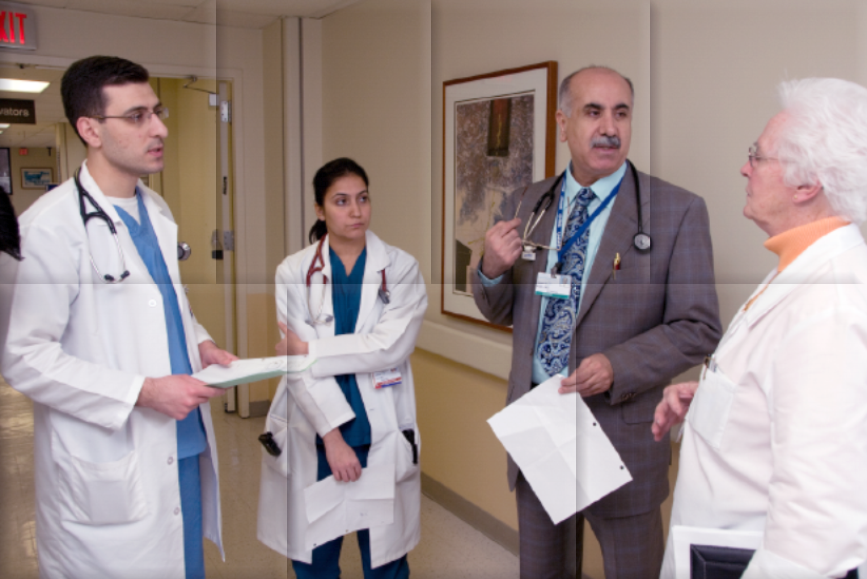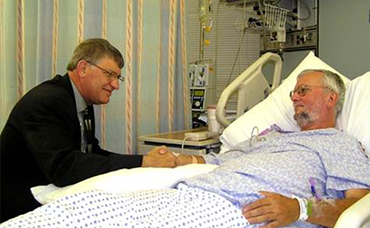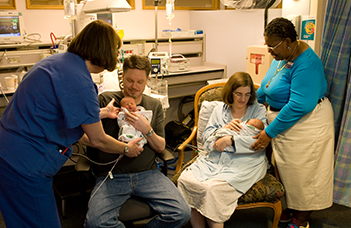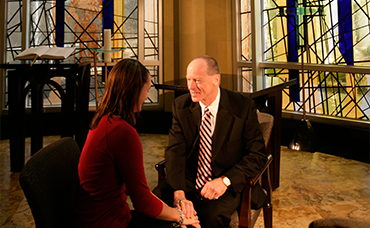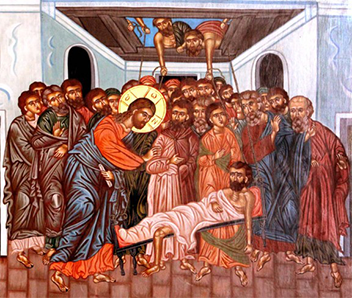
Welcome to Spiritual Care:
Essential to Catholic Identity
This course will help you understand:
- Why spiritual care is vital to Catholic
health care
- The responsibility of creating a healing environment that provides spiritual care for patients, families, loved ones
and staff
Select the four responses that most
closely match your ideas about the value and purpose of spiritual care. Then tap Submit to see if your choices match what the survey found.
| Spiritual aid in end-of-life care | |
| Part of Catholic identity/mission | |
| Lead prayer and ritual | |
| Aid in ethical decision-making process | |
|
Supportive presence for patient and family | |
| Important for the healing process | |
| Supportive presence for staff | |
|
Essential for treatment of the whole person |
| Supportive presence for patient and family | |
| Supportive presence for staff | |
| Essential for treatment of the whole person | |
| Part of Catholic identity/mission |
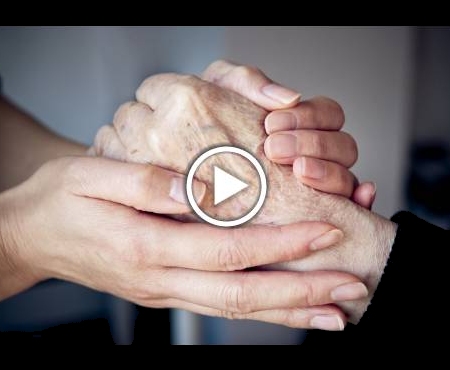
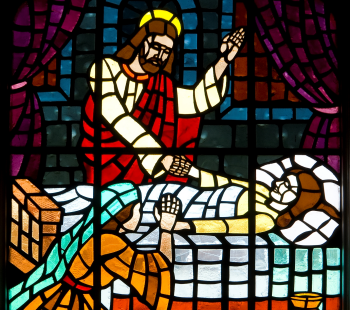
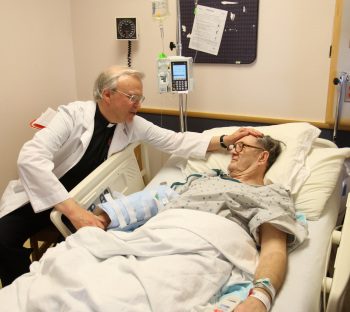
In this section you will learn that Catholic health care extends the healing ministry of Jesus, addressing the body, mind, spirit and social dimensions of the whole person.
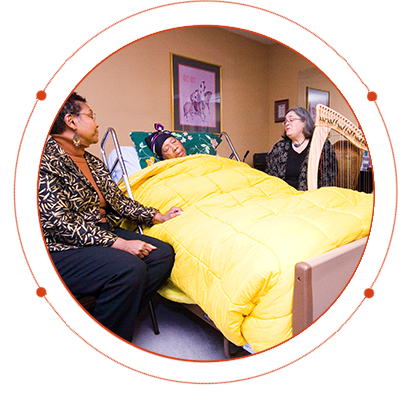
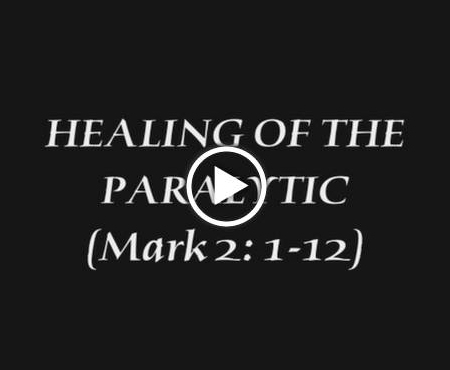
Watch a video to learn more about His healing of a man who was paralyzed.
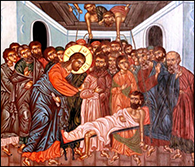
Healing of Paralytic
(Mark 2:1-12)
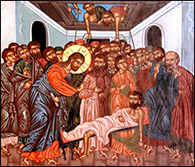
Body
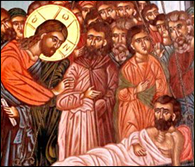
Social
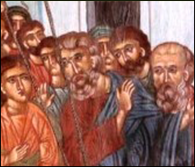
Mind
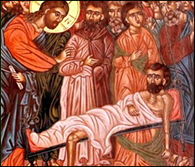
Spirit
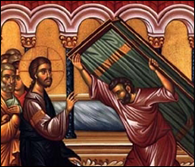
Social
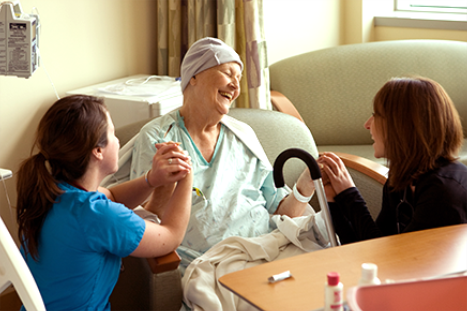
Our Healing Is …
- Commissioned by Jesus
- To reveal God’s presence
- A ministry of the Church

Health and Society
Conference (2000)
Ethical and Religious Directives for Catholic Health
Care Services (2009)
A Sign of Hope (1995)
These writings by Church leaders can help us reflect more deeply on the integration of spiritual care in our health care ministry. Tap each photo label to read Church leaders’ reflections on health care as a ministry.
While walking down a hall in your facility, you see a woman by herself crying.
Whose responsibility is it to stop and speak to this woman?
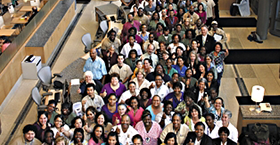
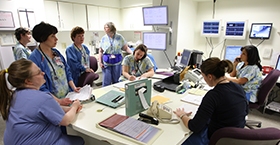
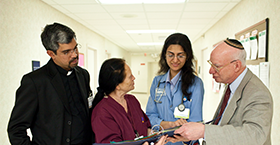
A patient who has been estranged from his family is dying in your facility’s ICU.
There is great tension among the family members as they gather in the ICU waiting room.
Whose responsibility is it to help this family?



A physician in a clinic is about to tell a patient she has Stage IV cancer and there is no chance for a cure.
The physician does not know how the patient is going to cope with the news.
Whose responsibility is it to initially assess the patient’s spiritual and
emotional needs and to call a chaplain if necessary?



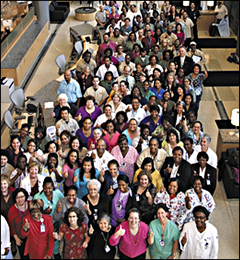
Spiritual care is one of the key traits of Catholic health care. We provide this care when we provide excellent service and practice our organization’s Core Values and Standards of Behavior. We are all responsible for creating this environment.
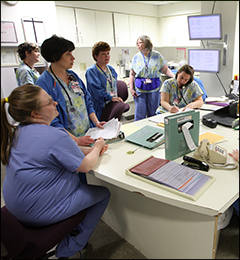
Physicians, nurses, certified nurse assistants, social workers and other direct patient care givers have a greater responsibility for attending to the emotional and spiritual needs of patients, their families and loved ones. Those who give direct patient care are often the ones who are prepared to diagnose spiritual distress or religious issues and make referrals to the spiritual care team.
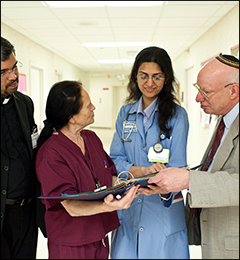
The norm is to have professionally trained individuals called “chaplains” who are certified specialists in delivering spiritual care to patients, families and staff. They spend time with individuals assessing their spiritual and emotional needs. They determine interventions that will assist the person, and they develop a spiritual care plan. Most spiritual care teams have Board Certified Chaplains who are also part of the patient care team; their work complements and broadens the holistic care provided by the team.
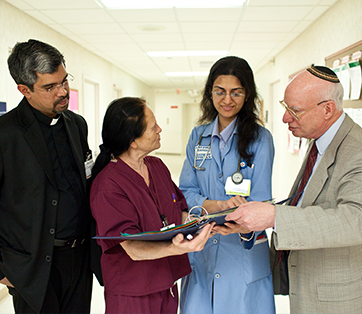
Catholic health care is a ministry that comes from Jesus. He cared for the whole person: body, mind, spirit and relationships. Therefore, to heal as Jesus did includes care of the spirit or soul. Please take some time to reflect on the following questions.
- How do I contribute to holistic care
in my organization?
- Do I see the work I do as a healing ministry?
- What is my comfort level discussing with patients and families their spiritual needs and making a referral to a member of the spiritual care team?
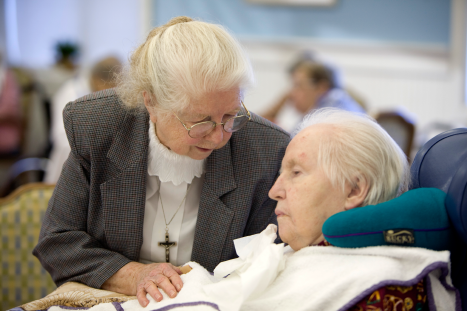
In this section you will learn more about the members of the spiritual care team and their responsibilities.
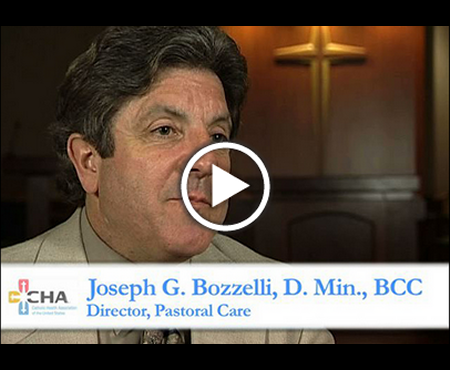
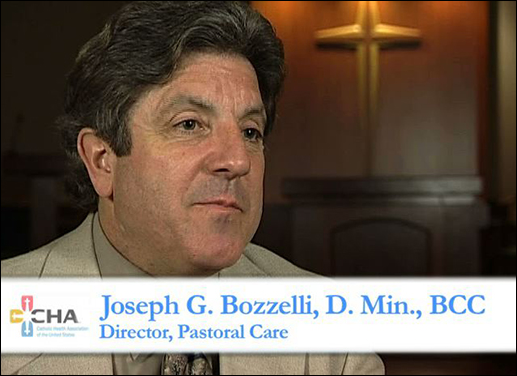
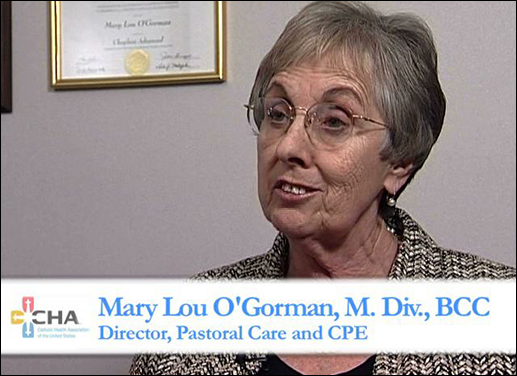
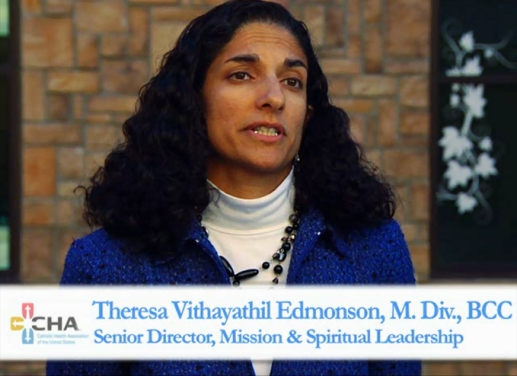
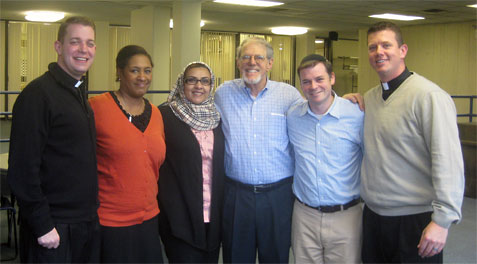
Like any department within a health system, Spiritual Care or Pastoral Care has its own strategic and operational plans, department policies, standards and job descriptions.
Most spiritual care departments have adopted the Standards of Practice for Professional Chaplains in Acute Care Settings. The Standards were developed by the Association of Professional Chaplains in partnership with the National Association of Catholic Chaplains and other chaplain groups. Standards of practice are being developed for other settings as well.

You will now look at the Preamble and the Standards which are found in Sections One through Three:
- Preamble
- Section One
- Section Two
- Section Three
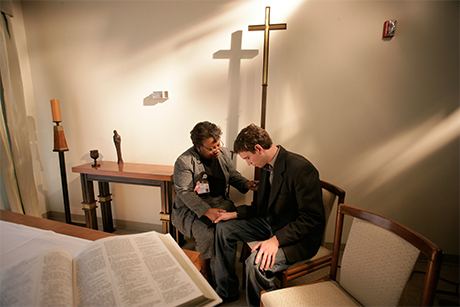
Chaplaincy care is grounded in initiating, developing and deepening, and bringing to an appropriate close, a mutual and empathic relationship with the patient, family and/or staff. The development of a genuine relationship is at the core of chaplaincy care and underpins, even enables, all the other dimensions of chaplaincy care.
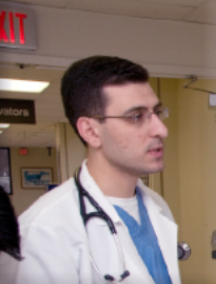  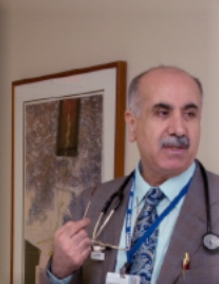 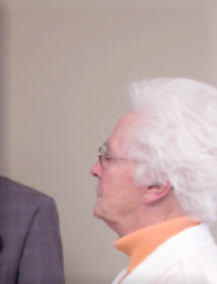 |
 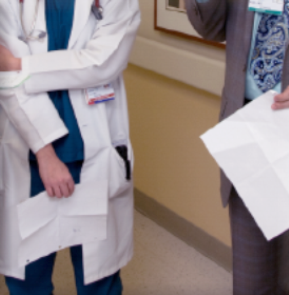  |

Chaplain
as Leader

Care for Organization

Care for Staff

Chaplain
as Leader

Care for Organization

Care for Staff
The chaplain provides timely and sensitive chaplaincy care to the organization’s staff via individual and group interactions.

Chaplain
as Leader

Care for Organization
The chaplain provides chaplaincy care to the organization in ways consistent with the organization’s values and mission statement.

Care for Staff
The chaplain provides timely and sensitive chaplaincy care to the organization’s staff via individual and group interactions.

Chaplain
as Leader
The chaplain provides leadership in the professional practice setting and the profession.

Care for Organization
The chaplain provides chaplaincy care to the organization in ways consistent with the organization’s values and mission statement.

Care for Staff
The chaplain provides timely and sensitive chaplaincy care to the organization’s staff via individual and group interactions.
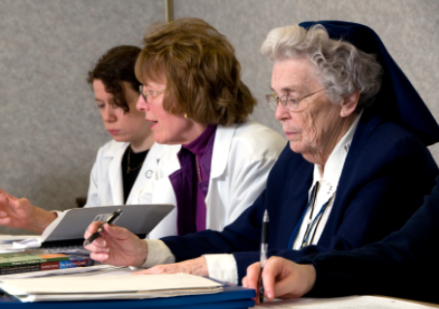
Continuous Quality Improvement
The chaplain seeks and creates opportunities to enhance the quality of chaplaincy care practice.
Research
The chaplain practices evidence-based care, including ongoing evaluation of new practices, and, when appropriate, contributes to or conducts research.
Knowledge and Continuing Education
The chaplain assumes responsibility for continued professional development, demonstrates a working and current knowledge of current theory and practice, and integrates such information into practice.
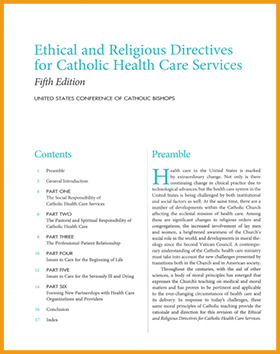
on Staff
A person who has completed a graduate-level theological degree and 4 units of Clinical Pastoral Education (CPE), is endorsed by a faith body, and has successfully submitted written materials and passed an oral interview by a certified team
A person who has some Clinical Pastoral Education (CPE) and/or some background in theology
An ordained priest who may or may not be a Board Certified Chaplain
A trained Catholic lay person, approved by their pastor,
who distributes Holy Communion to Catholic patients or residents
An intern or resident in the process of completing Clinical Pastoral Education (CPE)
A trained person, ordained clergy or lay person, who makes pastoral visits to patients or residents,
offers prayer support and makes spiritual care referrals to chaplains
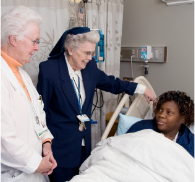
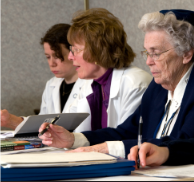
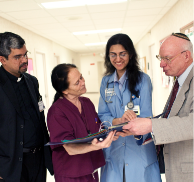
In this section we heard chaplains describe what they do.
We also learned the Standards which guide the practice of chaplaincy in general. In addition, we reviewed some of the Directives pertaining to spiritual care in the Ethical and Religious Directives for Catholic Health Care Services.
We also learned there are a variety of positions within a spiritual care department with varying degrees of preparation required to do the job.
 1. Do I know at least one chaplain within my organization? |
 2. Would I feel comfortable |
 3. What is the value of having spiritual care available in my organization? |
 1. Do I know at least one chaplain within my organization? |
 2. Would I feel comfortable |
 3. What is the value of having spiritual care available in my organization? |
 1. Do I know at least one chaplain within my organization? |
 2. Would I feel comfortable |
 3. What is the value of having spiritual care available in my organization? |
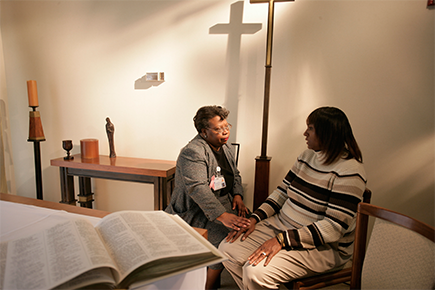
In this section you will learn about chaplain competencies and requirements for becoming a Board Certified Chaplain, and you will work through a brief contemporary issue.
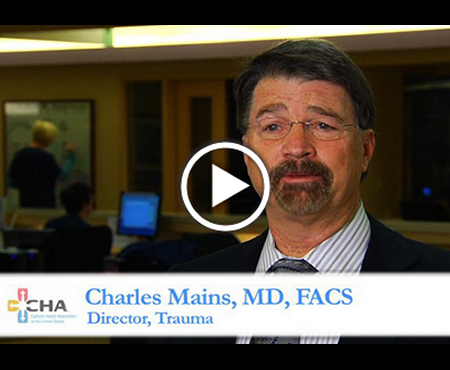
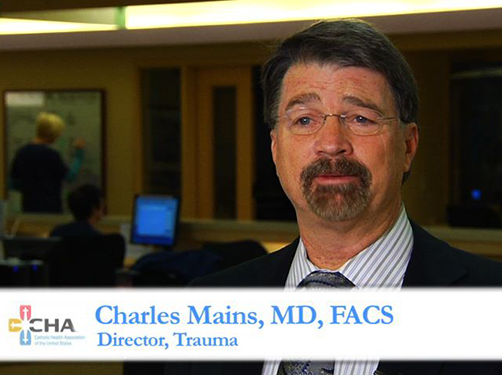
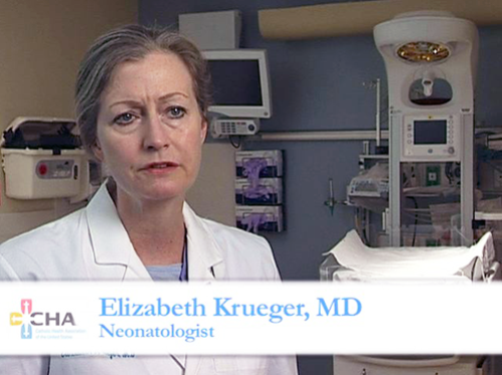
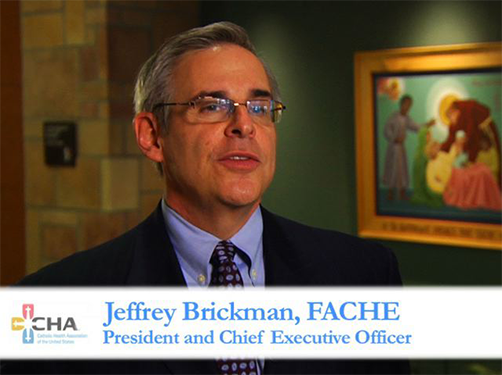
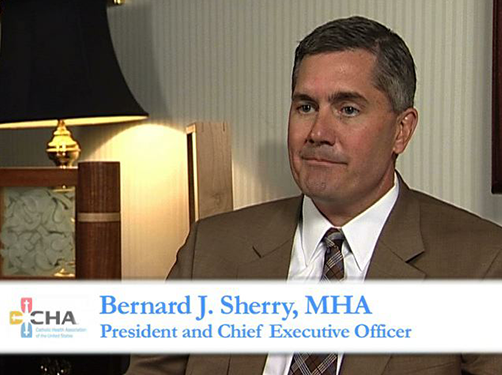
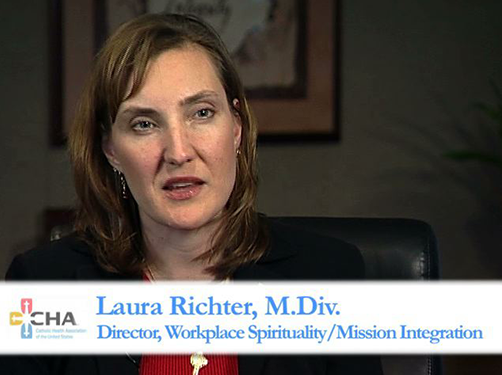
These health care leaders have shared the importance of having trained chaplains. Now let’s see what is involved in the preparation of a Board Certified Chaplain.





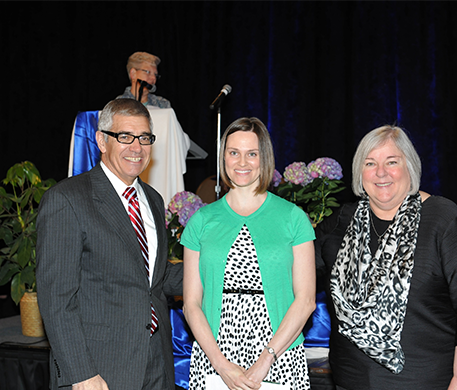
Theological Degree
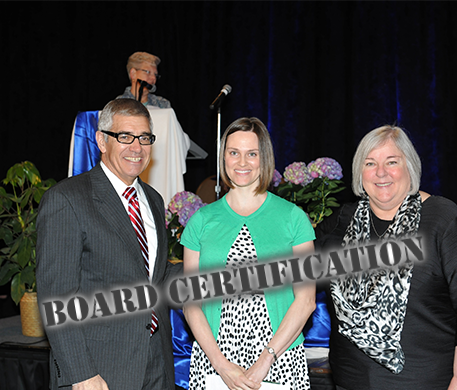
Theological Degree
After chaplains complete 4 CPE units, earn a graduate-level theological degree and receive endorsement by a faith community, they may apply for Board certification.
A Board Certified Chaplain brings cultural, religious, and spiritual assessment competencies that greatly benefit patients, families, loved ones and staff.

Contemporary Issue:
Good Shepherd Hospital is a Catholic hospital that has served a rural community for 75 years. The hospital has a staff of 700 employees, two of whom are Board Certified Chaplains, one a Catholic lay woman and the other a Baptist minister. The Catholic priests in the surrounding towns each take a week of providing sacramental coverage as the need arises. While patient volume is steady, reimbursement from government and commercial payors has been decreasing. The senior leaders of the hospital are beginning to look at cuts to staff as a way to offset declining revenues.
One option is to eliminate the Spiritual Care department with the hope that the hospital’s mission leader can convince the local priests and clergy to provide regular spiritual support to patients and families. You are concerned what this might do to Good Shepherd Hospital.

What is the purpose of the course?
Why is spiritual care vital to
Catholic health care?
What are the roles of patient and
spiritual care teams?
What are the Standards of Practice followed by chaplains, the Directives adhered to by chaplains who work in Catholic health care facilities and the criteria for becoming a Board Certified Chaplain?
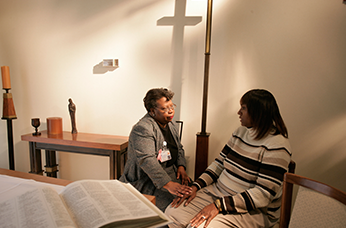
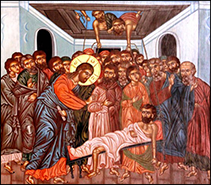
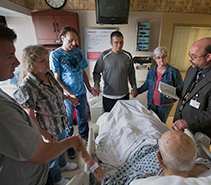
Just as the companions of the paralyzed man assisted their friend to be healed, so we are called to be companions to all who come to our facilities seeking wholeness and healing. We are called to remove obstacles encountered by persons searching for wholeness and to assist them in experiencing the total healing power of God.
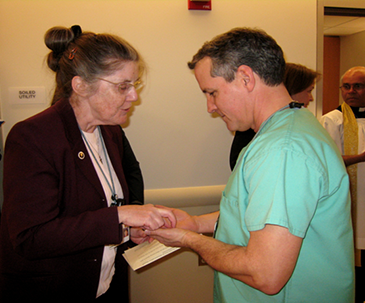
You have completed Spiritual Care: Essential to Catholic Identity. Thank you for all you do in the ministry of Catholic health care.
Tap these links to access additional information about topics covered in this course.
